Carl Jung famously wrote:
“One of the main functions of organized religion is to protect people against a direct experience of God.”
Jung’s view of God and religion are knotty. To understand his point in the quote above you’d have to unpack what he meant by the terms: “functions”, “organized religion”, and “direct experience of God”.
What Jung was essentially saying is that the function of formalized religion upon the human psyche is to concretize, codify and mediate “God” symbolically, in order to spare people from the direct experience of the eternal dimension within the psyche of the individual, which is a complicated and chaotic clashing of inner forces. To Jung, the “direct experience of God” is an experience of the ultimate, ineffable mystery of Being, and a confrontation with all that resides in the unconscious.
Herman Hesse put it this way in Steppenwolf:
“There is no reality except the one contained within us. That is why so many people live such an unreal life. They take the images outside of them for reality and never allow the world within to assert itself.”
These kinds of thoughts by Carl Jung are an examination of religion through the lens of psychology, the study of the processes of the mind.
The psychology of religion is a social science that studies the psychological processes that underlie religious beliefs and behaviors. It examines how people develop religious beliefs, how they experience religion, and how religious practices impact society. It also looks at the relationship between religion and the brain, and how religious experiences can affect consciousness and rationality.
Researchers who study the psychology and neuroscience of religion seek to explain why such beliefs are so enduring. A further explanation is that religion may be a byproduct of the way our brains work, growing from cognitive tendencies to seek order from chaos, to anthropomorphize our environment and to believe the world around us was created for our use.
A common insight from the psychology of religion is that religion may fill the human need for finding meaning, sparing us from existential angst while also supporting social organization. Other insights include:
The human mind’s tendency to look for patterns, purpose, and meaning may influence people to turn to religion.
The desire to be part of something larger than oneself contributes to the desire for the social connection of religious community.
People may endorse external systems, like religion, when they feel they have less personal control.
Religion can help displace the control for stressors, provide the tools to cope, and improve overall resilience to stressors.
Back in the days of my former religious life I would have vilified the entire field of the philosophy of religion because it just seemed to be saying that God, faith and religion are all “just in your head”, meaning that none of it is real, and simply a figment of someone’s imagination. That was way too much for an upstanding Evangelical Christian to accept.
Many people become nervous when their religious beliefs are removed from the category of faith, and placed under the microscope of the natural and social sciences. I get it. Too often these kinds of conversations seem too dismissive of religion. It doesn’t help that people like Richard Dawkins writes books like, The God Delusion. I’m not saying he shouldn’t have written it. I read it and found it useful, but you can probably see how it didn’t endear him to people who think more highly of faith and religion.
Harking back to Sigmund Freud, some psychologists have characterized religious beliefs as pathological, seeing religion as a malignant social force that encourages irrational thoughts and ritualistic behaviors. We are going to discuss Freud in this series. To be fair, Freud’s stance on religious is too dramatized and more nuanced than people think.
Religion has survived and thrived for more than 100,000 years. It exists in every culture, with about 85 percent of the world’s population embracing some sort of religious belief. In her book, The Case for God, Karen Armstrong wrote:
“My study of the history of religion has revealed that human beings are spiritual animals. Indeed, there is a case for arguing that Homo sapiens is also Homo religiosus. Religion was not tacked onto the human condition. The desire to cultivate a sense of the transcendent may be the defining human characteristic.”
I discuss some of these ideas in a previous series of articles: The Evolution of Religion.
A New Series: God in Mind: The Psychology of Religion
Today, I am starting a new series on the psychology of religion. Here’s what I am NOT doing in this series: I am not discussing the psychology of religion in order to question, undermine, debunk and dismiss all religious faith and experience. What I hope to achieve in this series includes:
Introduce people to the field of the psychology of religion to aid their process in cultivating a meaningful and liberating non-religious spirituality.
Point out ways that the insights from the psychology of religion can aid people in a faith transition, existential crisis, religious deconstruction process, or addressing the dynamics of Religious Trauma Syndrome.
Demonstrate how to utilize the field of the psychology of religion to develop critical, nuanced, balanced, compassionate thinking about the phenomenon of religion.
Edwin Diller Starbuck is considered a pioneer of the psychology of religion and his book Psychology of Religion has been described as the first book in the genre. This book was endorsed by William James who collaborated by writing its preface. Speaking of, American psychologist and philosopher William James (1842–1910) is regarded by most psychologists of religion as the founder of the field. His book, The Varieties of Religious Experience is a staple in the field.
In my view, one can better understand the phenomenon of religion through the lens of psychology. It’s also my belief that the religious deconstruction process is greatly aided by insights and contributions from the field of psychology. A lot of my professional work over the years has been with people who suffer from Religious Trauma Syndrome or otherwise deeply damaged by the impact of toxic religion. Psychology is obviously closely related to this work, including trauma-focused psychotherapy.
Even someone who is a religiously devout person can benefit from the insights of the psychology of religion, and could possibly provide some useful guardrails for addressing the dangers and downsides of religion.
In this new series, I am examining religion through the lens of psychology, and particularly applying these insights to the process of religious deconstruction, cultivating a meaningful and liberating non-religious spirituality, and cultivating greater existential health.
Specifically, the plan for this series is to first briefly explore the work of Edwin Diller Starbuck and William James since they are viewed as the pioneering figures of the field of the psychology of religion.
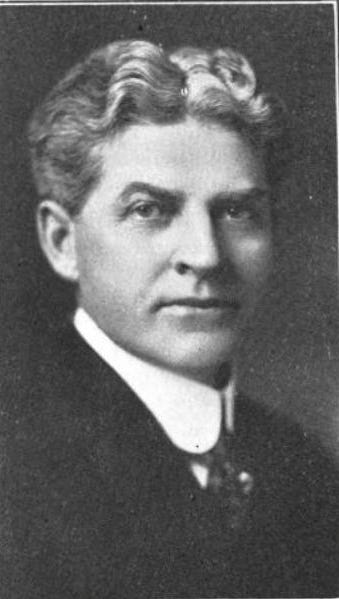

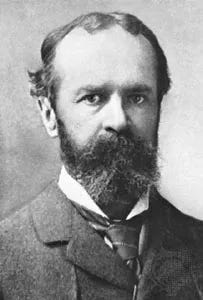

Because I have an absurd sense of humor, I’ll point out that Edwin Starbuck is not the founder of the iconic coffee chain, and William James has no relations to Lebron. The truth is that I don’t like Starbucks coffee because it’s too harsh for me and I like smooth coffee, and I am at heart a Chicago Bulls fan, though I liked the Lakers when Phil Jackson coached, and the Kobe Bryant era.
After briefly covering Starbuck and James, the four psychologists I’m going to cover are:
Sigmund Freud (1856-1939)
Carl Jung (1875-1961)
Jacques Lacan (1901-1981)
Julie Reshe (resides in Kyiv, Ukraine)
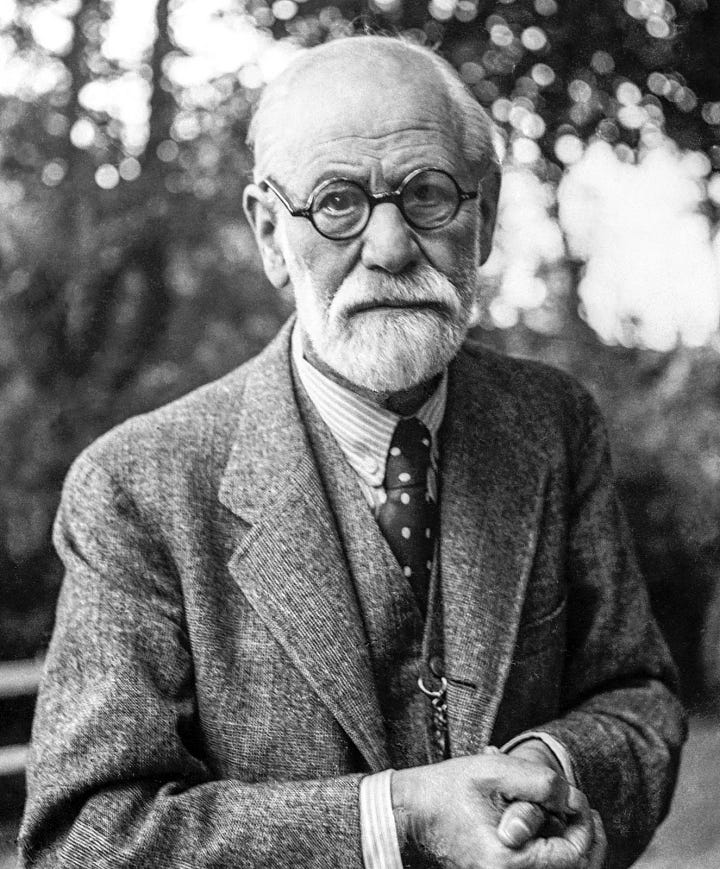
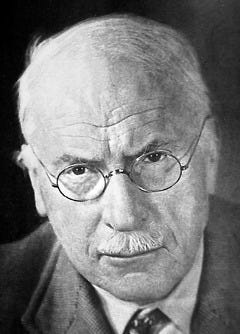
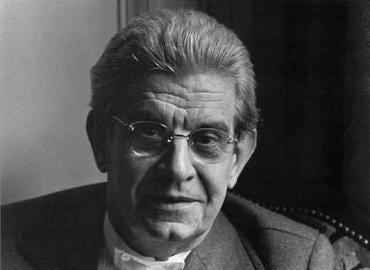

Lest one thinks it’s a requirement to be a white European male to work in the field of psychology, Julie Reshe saves the day!
Keep reading with a 7-day free trial
Subscribe to Deconstructionology with Jim Palmer to keep reading this post and get 7 days of free access to the full post archives.






